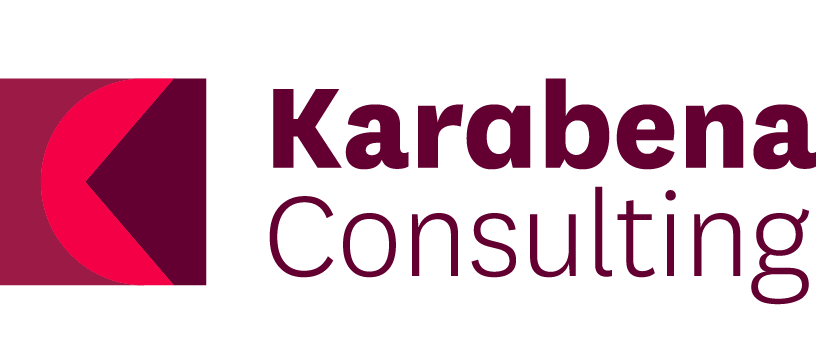Decolonising Research and Evaluation: Karabena’s position on research and evaluation reports involving Aboriginal and Torres Strait Islander People
David Reid
Senior Consultant Associate
When Karabena’s team members sit around the lunch table and yarn about our various projects, we take a moment to reflect on our methodologies. We work with a range of clients representing different sectors. For us, therefore, these informal meetings offer an opportunity to explore the varying expectations in how research is conducted and results produced. These often lead, internally, to more robust debates about how we present findings and recommendations for clients.
Balancing Audience Expectations and Ethical Responsibility
For instance, we often hear variations on the same theme: “remember that those who will be reading this report are time poor, so keep it succinct”. This is a valid comment, and we are not naive. Having worked as an English, Literature, and Literacy teacher in State schools for 14 years I know all too well the importance of considering ‘Author, Audience, Purpose, and Context’. Our team is comprised of individuals with diverse experiences across multiple sectors, and we understand the importance of catering for the target audience/s. However, in our work at Karabena, we must also consider where our responsibility ultimately lies. This is where methodological friction often exists.
Upholding Culturally Safe Research Principles
There are well established resources that outline the principles and guidelines for culturally safe and ethical research and evaluation involving Aboriginal and Torres Strait Islander peoples. We, at Karabena, adhere stringently to these principles and guidelines, with deep reverence to the individuals and communities involved. However, there is a broader principle that tends to guide our approach to gathering data and communicating insights. We aim to prioritise the voices of the people who have contributed their feedback and experiences. In this way, while we have a contractual obligation to sponsors of each project, our ethos centres on our responsibility to the Aboriginal and Torres Strait Islander people who inform, and will be impacted by, our work.
Humanising Research in a Western-Dominated Field
We take this responsibility very seriously. We see this approach as humanising research and evaluation in a field that is dominated by a Western, colonial lens that can dehumanise individuals into data sets. Historically, this lens has been a machination of colonial power that has sought to marginalise and silence the perspectives of the colonised. We resist this in the contemporary context by centering our work on voices and experiences that have previously been, and can continue to be, minimised. We often adopt a narrative style that allows the voices of consultees to guide outcomes - including pull out quotes, case studies, and stories - which sit alongside quantitative analysis, literature reviews, and analysis of State and Federal policy and priorities. This leads to, inevitably, reports that are, for lack of a better word, comprehensive.
Example: Evaluation of the Strong Brother, Strong Sister Program
For instance, in our recent evaluation of the Strong Brother, Strong Sister (SBSS) suicide prevention and social and emotional wellbeing program (conducted on behalf of the Department of Health), we used multiple modes of communicating the program’s impact. This included:
A review of State and Federal policies and priorities,
A review of best practice in suicide prevention for Aboriginal and Torres Strait Islander people evident in available literature and case studies of similar programs,
Analysis of quantitative and qualitative data available in internal annual reports.
These activities established a clear rationale and evidence-base for the program’s model of success. More important to us, though, and an element that was therefore prioritised in the final report, was the powerful feedback shared by program participants, family members of participants, SBSS staff, and community members and leaders. Ultimately, it is these individuals who stand to be impacted most by the outcomes of our evaluation, and so it was important to us that their feedback guided the report. Key quotes and case studies, in turn, were emphasised to highlight the story and narrative of the program’s impact. Through this approach, our intention was to humanise the program’s impact using beyond simply what a cost-benefit analysis, a review of annual funding reports, and high-level themes emerging from consultations can achieve.
Navigating a Dual Responsibility
Of course, we understand that we cannot disregard traditional forms of research and evaluation as defined by Western, colonial institutions. Many of the systems we navigate are directly informed by these norms. However, our work exists in the space of duality - our responsibility to institutional research and evaluation standards, and to the Aboriginal and Torres Strait Islander people we consult with. We aim, therefore, to uphold our integrity to both.
Remaining Steadfast to Our Responsibility
While this dual approach means time-poor individuals may not read every word of our reports, we pride ourselves in remaining steadfast to our responsibility. Even if one quote or case study resonates with a decision-maker, and moves them to see beyond simply the ‘data’, then this validates our efforts. After all, it is important to remind those with the power to create or deny change about the humans involved.
Read more in Decolonising Research and Evaluation: The Power of Peer Researchers.
References
See, for instance, Gollan, S & Stacey, K 2021, Australian Evaluation Society First Nations Cultural Safety Framework, Australian Evaluation Society, Melbourne and National Health and Medical Research Council, Ethical conduct in research with Aboriginal and Torres Strait Islander Peoples and communities: Guidelines for researchers and stakeholders (2018), Commonwealth of Australia: Canberra.

